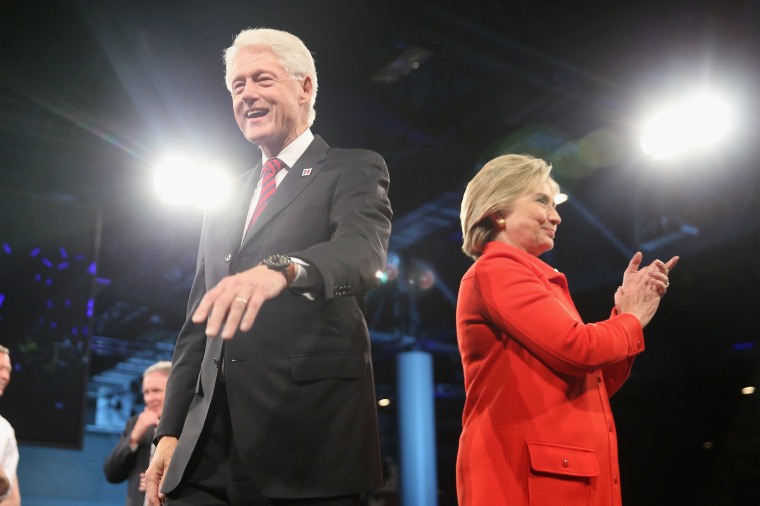The report from the Associated Press yesterday came with a headline designed to raise eyebrows: "More than half those who met Clinton as Cabinet secretary gave money to Clinton Foundation." The story's lede leaves no doubt that the AP believes it's uncovered something resembling wrongdoing:
More than half the people outside the government who met with Hillary Clinton while she was secretary of state gave money -- either personally or through companies or groups -- to the Clinton Foundation. It's an extraordinary proportion indicating her possible ethics challenges if elected president.
The proportion is considered "extraordinary" because, well, apparently the Associated Press says so.
But right off the bat, the first sentence undercuts the provocative headline: "more than half" of those Clinton met with "outside of government" supported her husband's charitable foundation. In other words, to arrive at the controversial figure, the Associated Press had to exclude all kinds of people: State Department officials, diplomats, ambassadors, foreign leaders and officials, White House personnel, military servicemen and women, etc.
In other words, after excluding the people any Secretary of State might ordinarily see on a typical day, and looking exclusively at this smaller subset of people Hillary Clinton met with, more than half of them contributed to Bill Clinton's charity.
Of course, the implication is that we're looking at some kind of pay-for-play controversy: people hoping to influence the Secretary of State, the argument goes, offered support to the Clinton Foundation, and in turn, they gained access to Hillary Clinton. The controversy, for lack of a better word, is based on the implication that charitable contributions helped some powerful people gain access to the United States' top diplomat.
But at least for now, there's no evidence of actual wrongdoing. Even Clinton's critics have not yet pointed to any specific instances of impropriety or ethical lapses. We're looking at a story with smoke, but no fire.
To bolster its thesis, the Associated Press' report noted, for example, that Clinton met three times with Muhammad Yunus, "a Bangladeshi economist who won the 2006 Nobel Peace Prize for pioneering low-interest 'microcredit' for poor business owners." It's true that Yunus had partnered with the Clinton Foundation to help people in developing nations, but it's also true that the Nobel laureate is exactly the kind of non-governmental official one might expect a Secretary of State to meet with and assist.
The Associated Press article also noted Clinton having met with the head of an international AIDS charity, who also contributed to her husband's foundation. Again, the piece points to this as possibly problematic, but there's no reason to believe a Secretary of State wouldn't have had the same meeting, regardless of any charitable contributions.
Former RNC Chairman Michael Steele said on MSNBC last night, in reference to yesterday's Clinton coverage, "It may all be very innocent, but it doesn't pass the smell test."
But therein lies the problem: there are no real allegations of wrongdoing here, only assorted details that seem kinda sorta wrong to Clinton's detractors. The result is something that resembles a "controversy," even if the evidence is vague and unpersuasive. There's a perception of some unidentified wrongdoing, and evidently, that's enough.
There are, of course, broader electoral circumstances. Donald Trump has overseen a shady business enterprise, accused of all kinds of legal and ethical lapses, so there's a temptation among some to find a comparable problem for his major-party rival -- since, for much of the political media, "both sides" are always deserving of equal criticism.
But that doesn't mean the evidence warrants it.
The circumstances, at their root, have no historical parallel: a Secretary of State, married to a former U.S. president who launched an international charitable foundation, is herself a leading presidential candidate. Intense scrutiny is unavoidable and entirely warranted.
But without proof of improprieties, this new "scandal," at least for now, rings hollow.
